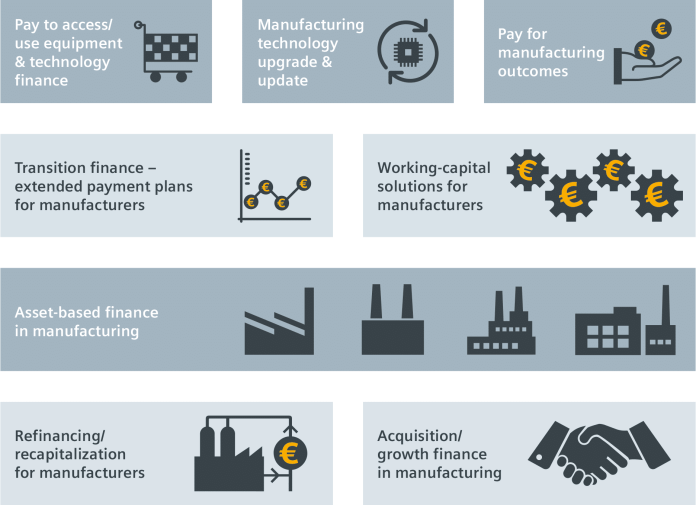By Brian Foster
Industry 4.0, the Fourth Industrial Revolution, is inexorably gathering strength. Industry 4.0 introduces the digitalization of processes, the Internet of Things, the installation of widespread sensors in the physical environment and the ability to rapidly enhance production economics through real-time performance-data analysis.
New-generation digitalized technology is enabling manufacturers in all sectors to improve performance through increased manufacturing productivity, more accurate planning and forecasting, enhanced competitive capabilities and greater financial sustainability.
Industry 4.0 represents a significant opportunity for manufacturers to offer their customers enhanced product ranges and quality in tandem with more competitive pricing. Companies that have already started to invest in the new wave of digitalized technology are able to benefit from the key points of value that digitalization and automation deliver:

Although the various dimensions of productivity differ between industries and countries, increased manufacturing productivity – the ability to either produce the same number of products for less, or more products for the same – has a clear and calculable positive effect on costs and margins.
This effect – which we have called the Digitalization Productivity Bonus – is the focus of our latest research[1], which captures testimony from over 60 international industrial companies, expert management consultancies and academic specialists based in 11 countries. The resulting model estimates the Digitalization Productivity Bonus for different industries. The potential Global Digitalization Productivity Bonus (all manufacturing sectors) is estimated to be between 6.3% and 9.8% of total annual revenue by 2025.
Of course, manufacturers only gain the Digitalization Productivity Bonus once they have upgraded production technology to the new generation of digitalized systems and equipment and have, as a result, realised the benefits in practice. While digitalization drives financial sustainability, access to a range of smart and appropriate financing techniques – Industry 4.0 Finance – is also critical to a company’s ability to sustainably invest in the new fourth-generation of digitalized technology and automation equipment.
Examples of Industry 4.0 Finance:

Industry 4.0 finance covers a range of requirements from the acquisition of a single digitalized piece of equipment, right through to financing a whole new factory. Financing techniques have now been developed to allow an organisation to in effect apply some or all of the Digitalization Productivity Bonus to fund the digitalized technology and equipment that makes the bonus possible in the first place. In simple terms, these financing methods seek to align payments for the new generation technology with the rate of gain from the Digitalization Productivity Bonus. Broadly speaking, this can help make the upgrade to digitalized technology affordable and potentially cost neutral (or better) for the manufacturer. In fact, for much of the global manufacturing sector, the rate of conversion to digitalization is expected to be determined by the availability of these specialist financing techniques – and particularly for companies that do not have a means of financing these improvements themselves.
Industry 4.0 Finance arrangements tend to be offered by specialist providers that have a deep understanding not only of how the digitalized technology works, but also of how that technology can be practically implemented to deliver the Digitalization Productivity Bonus as well as other benefits of digitalization. At times, the financing arrangement will be an embedded component of the value proposition, offered right at the beginning of the sales cycle. In other cases, the technology provider will refer its customer to one or more finance providers to fund a sale.
Complete solutions should be taken into consideration in order to identify the best finance package to effectively digitalise a manufacturing facility’s entire operation – from equipment to software to the production line to the whole enterprise. Between them, this range of Industry 4.0 Finance techniques is crucial in allowing organizations to access the Digitalization Productivity Bonus.
Brian Foster is Head of Industry Finance at Siemens Financial Services in the UK. You can access the research here: www.siemens.com/the-digitalization-productivity-bonus
[1] Siemens Financial Services, ‘The Digitalization Productivity Bonus’, April 2017









